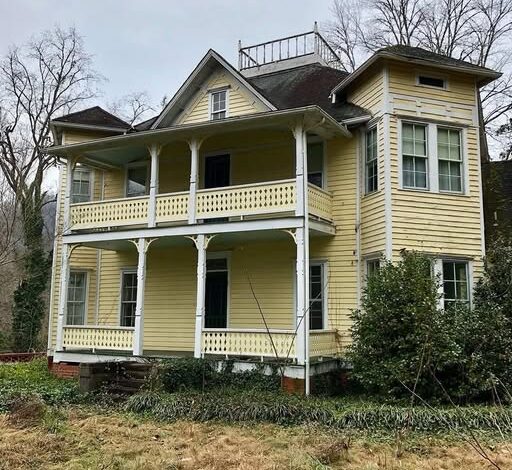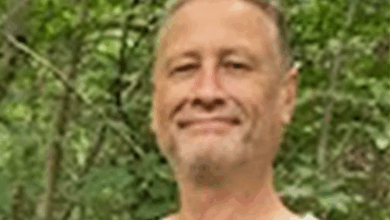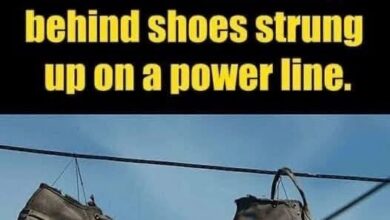
I Visited My Late Fathers House for the First Time in 13 Years and Found a Bag in the Attic with a Note for Me
They say time heals, but grief doesn’t own a clock. Thirteen years after my father died, I still felt him in everything—the way the kettle hissed, the sound of his favorite record in a grocery store, the reflex to call him when life got heavy. He wasn’t just my dad. He was the person who stayed when everyone else left. My mother walked out the day I was born. He stayed for all the days after.
After the funeral, I locked the door of our old house and couldn’t bring myself to open it again. The silence inside had teeth. It felt like if I stepped in, it would bite down and never let me out. I told myself I’d return someday to find old documents or keepsakes. But the truth was simpler: I was too afraid
Then one September morning, something shifted. Maybe it was getting older, or maybe I was tired of carrying grief like contraband. I drove out there, parked under the same oak tree my dad planted the day I was born, and sat staring at the front steps. That tree had grown taller than the roofline now. I remembered him holding me up to touch its leaves when I was five. “Strong roots, kiddo,” he’d said. “Reach for the sky, but hold your ground.”
I stood at the door with the old copper key in my hand. “You can do this,” I whispered to myself, and immediately felt like a liar. I turned the key. The hinges groaned, and for a heartbeat, I thought I heard him—his familiar voice, warm and teasing: “Welcome home, kiddo.”
I almost said “Dad?” before realizing it was just the wind through broken glass.
I told myself I was there for one thing—some old financial papers I needed. No wandering. No nostalgia. No ghosts. But grief doesn’t care about your plans.
The house smelled the same: wood polish, dust, and something faintly sweet like the coffee he used to make on Sundays. I found the file drawer, but before I knew it, my feet carried me to the attic hatch. It was muscle memory—where we stored Christmas decorations, his old jackets, and the boxes of my childhood that he could never throw away.
I climbed up, the ladder creaking like it was scolding me for taking so long. Dust rose in clouds, turning sunlight into fog. My throat tightened. Everything was still there: my school trophies, his flannel shirts, a tin of mints from who-knows-when. I picked up one of the flannels and pressed it to my face. It still smelled like his aftershave—cedar and soap. “You promised you’d see me graduate,” I whispered, and in my head, I heard him answer like he always did: “I’m sorry, pumpkin. I would’ve moved heaven to get there.”
Then I saw it—a worn leather bag tucked behind a stack of old paperbacks. My chest clenched. That bag had been our weekend ritual. Inside it lived our video game console, two controllers, and the endless competitions that defined our Saturdays.
My hands trembled as I unzipped it. On top of the console lay a folded piece of paper with my name on it in his familiar handwriting.
“We’ll play together after you pass the entrance exams, pumpkin. I’m proud of you.”
The attic blurred. My throat closed. “You didn’t get to see it,” I choked out. “I passed, Dad. You were right about me.”
I carried the console downstairs and set it up, the way we used to. The TV flickered to life, and there it was—the old racing game that had ruled our living room. The startup jingle hit like a punch to the ribs. And then I saw it: his ghost car, sitting on the start line. The game saved your fastest lap as a transparent version of your car, replaying it forever.
“You left me a race,” I whispered.
I remembered the last time we played before the hospital. I’d been so close to beating him. “Promise me you’ll keep racing,” he’d said, half-joking, half-serious. I didn’t understand what he meant then. I did now.
I picked up the controller. My hands shook as the countdown began. Three, two, one—go.
His ghost car shot forward, smooth and perfect, every turn memorized like muscle memory. He’d always been unbeatable, graceful even in pixels. “Push, kiddo,” I could almost hear him say. “You’re holding back.”
“I’m trying,” I muttered, my voice breaking. It was absurd—crying over polygons on a screen—but grief doesn’t care about logic. Lap after lap, I got closer. I could feel his rhythm, the way he cut corners, the way he braked just enough. For the first time in years, I felt like I was with him again.
After an hour, I finally edged past his ghost. The finish line flashed ahead. My thumb hovered over the accelerator. One more second and I’d win. One more second and his ghost would vanish from the leaderboard—replaced by mine.
“If I let you win, do you stay?” I asked the screen.
No answer. Just the hum of an old TV and a digital sky frozen in eternal noon.
“I miss you every day,” I whispered. “Sometimes I still call your number, just to hear your voice on the voicemail.”
My thumb lifted. I let him cross first.
His ghost drifted across the finish line, and I laughed through tears that felt cleaner than any I’d cried in years. It hurt, but it was the kind of hurt that made space for air again.
I packed up the console and brought it home. Now, on nights when work at the hospital leaves me hollow, I plug it in and race. Sometimes I talk to him. I tell him about my patients—the stubborn old man who reminds me of his humor, the teenage girl who made it through chemo and smiled like she’d won a war.
“You’d tell me to keep my chin up,” I say to the screen. “You’d tell me I’m doing good.” His car always pulls ahead in the first lap, just like he used to. I never try to beat him now. It’s enough to chase him.
One night, after a long shift, I finished a race and stood by the window, city lights flickering below. “If you can see me, Dad,” I said, “I’m okay. Not perfect. But okay.”
The console hummed, a soft electric heartbeat. I rested my hand on its warm plastic. “Every time I race you,” I whispered, “I get a piece of you back.”
When I finally went to bed, I left the console on, the ghost car looping endlessly around the track. Just before sleep took me, I thought I heard it again—that warm, laughing voice.
“Same time next weekend, pumpkin?”
“Wouldn’t miss it,” I murmured into the dark.
Love doesn’t die. It just changes shape. Sometimes it’s a laugh you still hear in the hum of an old machine, or a hand you still feel in the empty space beside you. Sometimes it’s a ghost car that keeps circling the track, pulling you forward, reminding you that the race isn’t over yet.
And I’ll keep driving—lap after lap—until the day I finally catch him.




